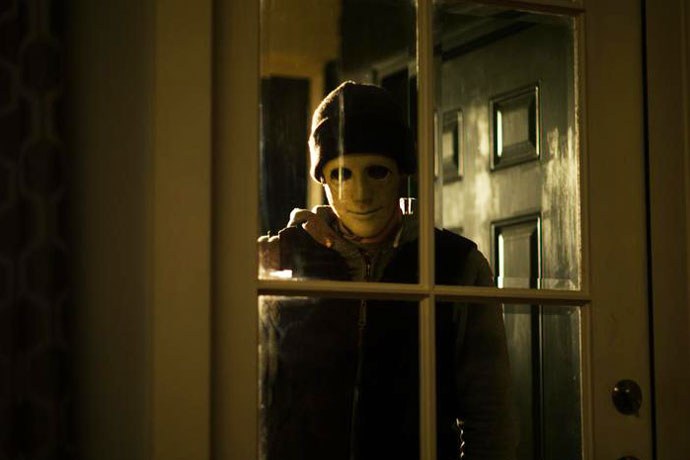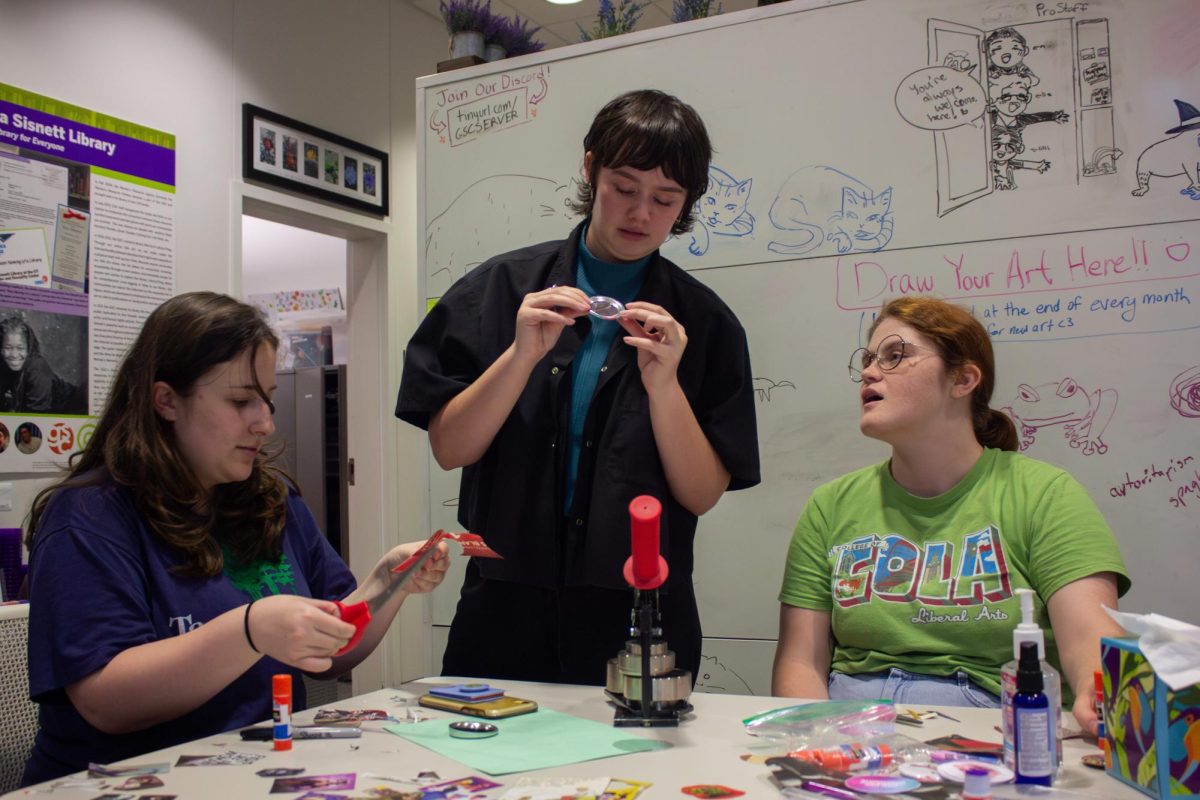The crunch of blood-soaked boots. The rustling of trees. The creak of an opening door. Sound signals the approach of danger. Lose your hearing, and you lose one of your most valuable tools for survival.
In Netflix’s “Hush,” a deaf novelist, Maddie (Kate Siegel), has to compensate for her deficiency. She has a deafening fire alarm that can alert her to danger because it causes vibrations. She constantly has to keep an eye on her phone because the ringtones we’re so accustomed to are no help to her. The only things she can hear are the voices in her mind, all of them taking the guise of her mother’s.
Maddie lives alone in the woods, her only neighbors nearby in another cabin. Not long after we’re introduced to her, night falls while she struggles to settle on an ending for her next book. A crossbow-wielding murderer (John Gallagher, Jr.) appears from the blackness of the forest, but Maddie remains unaware of him.
For a short while, director Mike Flanagan, who also co-wrote the film with, fittingly enough, his wife Siegel, plays with Maddie’s deafness and the killer’s alarmingly close proximity to her. When the killer finally does make his presence known by sending her pictures from her own phone to her laptop, the tension only escalates, as Maddie finds herself thrust into a battle that will test her resourcefulness and cunning.
“Hush” is especially frightening because its hero is vulnerable in a refreshing way. Yes, she’s a woman, and that makes her physically inferior to her enemy, but it’s her deafness that may ultimately prove her undoing. She might not know someone’s behind her until it’s too late, and she might also misjudge the loudness of her own actions.
Thankfully, Maddie doesn’t go down easy. She several hard hits, some of them nearly fatal, and hits right back at Gallagher’s villain. Their cat-and-mouse game is thrilling, as both intelligently one-up each other time and time again, seeking to regain power as violently as they can. The weapons Maddie relies on, from a hammer to an uncorker, are set up early on, and the payoffs of each one’s use are rousing and gratifying. As “Hush” races toward its closing minutes, viewers will find Maddie bleeding out, losing consciousness and close to defeat. The thrill of the picture comes from how she bounces back from the edge of the abyss.
There are also moments Maddie’s deafness becomes a strength for her. When glass breaks or her attacker approaches, she can strategize with greater focus than someone who can hear impending doom. It’s immensely satisfying to watch her use her disability in an advantageous way.
Siegel, who bears a small resemblance to Angelina Jolie, succeeds with a raw physical and emotional performance that invites us to root for Maddie. Gallagher effectively sheds his teddy bear, good-guy image from his previous work in “Short Term 12” and “The Newsroom,” posing a truly scary, sadistic threat.
For Maddie to defeat her killer, she must suppress her fear. She’s alone in the woods because she’s run away from problems with her ex-boyfriend, isolating herself from society and only communicating with her sister through Facetime. She’s a passive observer of the world, symbolized by her mental voice sounding like her mother’s. When she gradually takes control of her dire situation and reclaims her agency, Maddie finds her own voice.
“Hush”
Running Time: 87 minutes
Rating:
Score: 4.5/5 stars





















